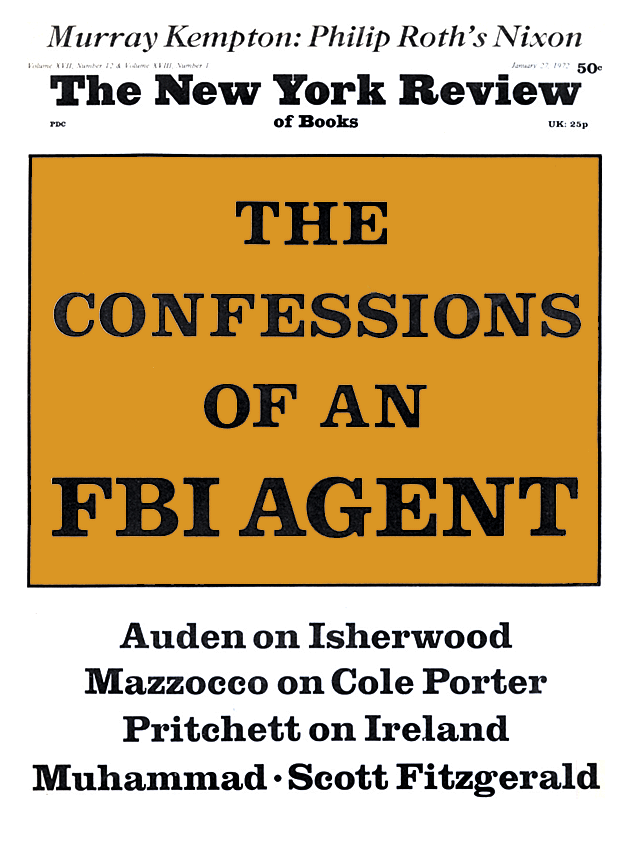In response to:
Eyeless in Indochina from the October 21, 1971 issue
To the Editors:
All of us—most of all, I suspect, the participants—enjoy seeing Schlesinger [NYR, October 21 and December 16] and Gelb [NYR, December 2] go at each other at various levels, but the issues are too important to permit degeneration into a shouting match. My aim is to try to state what seems to be the area of wide agreement and then to try to sharpen the remaining and important differences.
All of the participants in the debate seem to agree on the following propositions:
- Our leaders believed that the war in the south could not be won unless Hanoi ceased its support of the insurgency, in Dean Rusk’s famous phrase “left their neighbors alone.”
- Our leaders did not believe that any step which they authorized would lead to military victory in the south.
-
Our leaders believed that if the United States demonstrated its willingness and determination to remain in Vietnam as long as necessary and to escalate the war, Hanoi would ultimately relent and either fade away or negotiate a political settlement on American terms.
-
Our leaders believed that maintaining the independence of South Vietnam as an anticommunist nation was vital to the security of the United States.
-
Our leaders believed that permitting South Vietnam to be taken over by Hanoi would have serious domestic consequences both for their own ability to remain in power and for a revival of McCarthyism.
The important disagreement comes on the question of which beliefs it was necessary and sufficient to alter in order to bring about a change in policy. Mr. Schlesinger seems to be arguing that No. 3 was critical; Mr. Gelb points to 4 and 5; Mr. Ellsberg emphasizes 5. Since our leaders believed all three it is difficult to disentangle.
In assessing the evidence on this point it is, in my view, critical to keep in mind the fact that almost all of our leaders who were responsible for our Vietnam policy in the past ten years still believe that the policy was not only correct, morally and politically, but also that it has been successful. They expect American airpower and military aid to keep the Thieu regime in power for the foreseeable future. If they made any mistakes they were, as Dean Rusk has suggested, in the failure to see that Hanoi would not relent as quickly as they hoped and that the American people would lack the determination and understanding to support the policy. But even had they foreseen these difficulties, as long as they believed in the vital importance both for our security and our politics of holding South Vietnam, they would have carried on as they did. It is this proposition that the supporters of the Quagmire thesis must challenge if they are to maintain their position and rebut the argument put forward by Mr. Gelb.
At the risk of violating my own injunction, but in the absence of any response by Mr. Gelb, let me note two points for the record. From the time that Mr. Gelb entered the Pentagon in May, 1967, until he left in 1969, he worked vigorously and effectively for an American withdrawal from Vietnam. Mr. Gelb has not sided with Walt Rostow in the debate about what Kennedy would have done—he has merely noted his own agnosticism and his own doubt that anyone can be sure.
Morton H. Halperin
Bethesda, Maryland
This Issue
January 27, 1972


